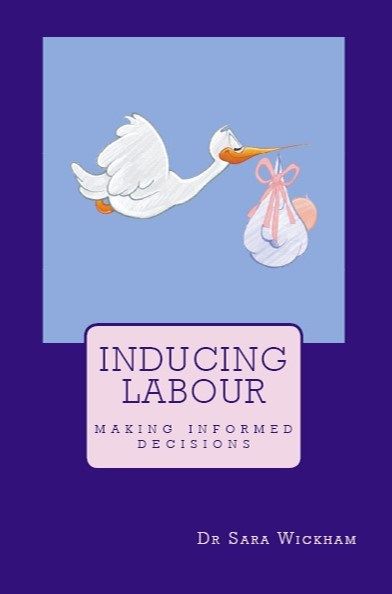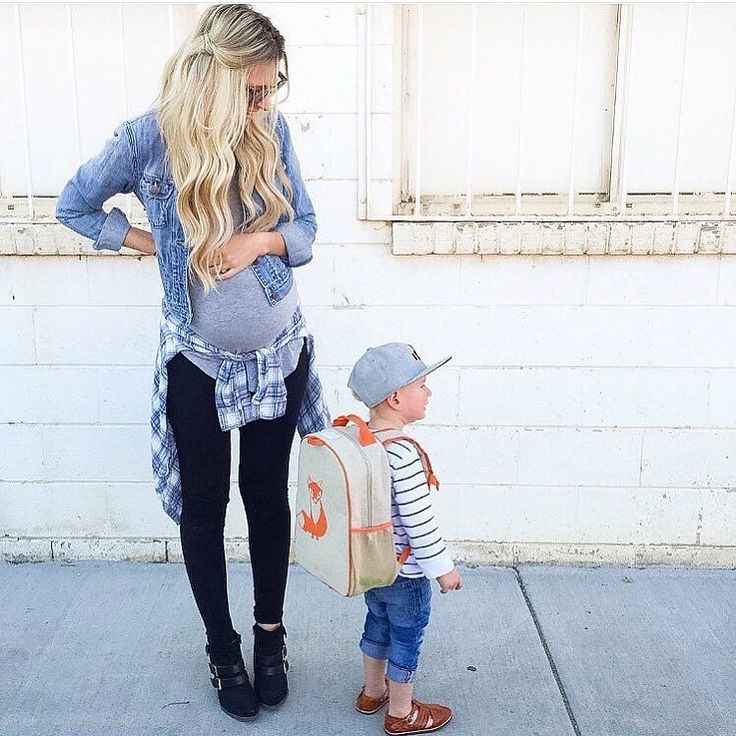Advice for dads during pregnancy
First trimester: tips for dads to be | Pregnancy articles & support
In lots of ways, the first trimester is the trickiest. You’re both getting your heads around the news that you’re going to be a parent. But what about dads to be? We provide support and help.
Baby development: what’s happening during the first trimester?
While you’re not the one who’s always tired and suddenly loves pickled gherkins, you can feel more connected to your baby when you know what’s happening.
So, during the first trimester, the fertilised egg will burrow into the womb lining. By the fourth or fifth week, the initial egg cell forms into three layers. These layers are the breathing and digestive system, the heart and blood vessels, and the brain and the nervous systems (NHS Choices, 2017a).
"Your baby is growing so much it'll probably give your partner some symptoms. Yet there are things you can do to help her through this."
By the sixth or seventh week, you might see the heart on a vaginal ultrasound scan. The head begins to grow around weeks seven to eight and the embryo will be about 10 mm long (NHS Choices, 2017a, b).
By week nine your baby’s face, hands and feet will be forming and by week 10 you can see them make tiny, jerky movements on an ultrasound scan. At week 11 your baby will have fingernails and by week 12 the placenta will be fully formed (NHS Choices, 2017b). Are we blowing your mind yet?
How your partner might be feeling
The first trimester means a mix of symptoms for women, which can include:
- Tiredness as hormonal changes can leave them exhausted.
- Nausea and vomiting. Again, it’s about the hormonal changes. Sickness is common but look out for symptoms of hyperemesis gravidarum, which is severe morning sickness. If your partner can’t keep any food or drink down, she may have this and will need to see her GP.
- Toilet trips. Again, it’s the hormonal changes.
- Painful breasts. As they gear up for breastfeeding, your partner’s breasts can become sore.
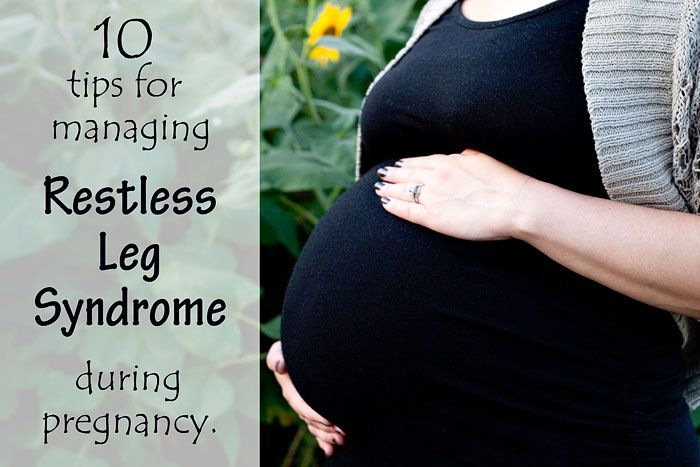
- Irritability or mood swings – she may be up and down a lot around now so be patient.
(NHS Choices, 2017c, d; NHS Choices, 2018a, b, c)
How to help your partner through the first trimester
- Get the vacuum out. Even if you normally split housework equally, now’s the time for you have to be the one vacuuming under the sofa cushions. Make sure you give your partner the chance to put their feet up during the day.
- Lift the heavy stuff. Pregnant women and heavy lifting don’t go together due to strains on their backs. So take the load off her as much as you can.
- Encourage good lifestyle choices. You can help your partner to eat more healthily, and make sure you reduce the risk of any infections they might get from foods. She should also start taking a folic acid supplement if she isn’t already.
- Help her to stop smoking, drinking or taking recreational drugs if this is something your partner does.

- Start cooking. Even the smell of food can make some pregnant women feel sick. So you could make the meals to help her avoid those smells. Bring her some dry toast or plain biscuits before she gets out of bed, as well as a big glass of water. Early pregnancy can be a thirsty business.
- Stay calm. Remember that the mood swings are just hormones and will pass soon.
(NICE, 2008; NHS Choices, 2018a, b)
First time dads: tips and tricks
- Speak to friends who’ve had babies for support. Hearing their experiences can be really helpful.
- Help your partner with the practical stuff. Once you know she’s pregnant, she should visit the GP or midwife who’ll put her on the system for antenatal appointments and a midwife. She’ll probably have around 10 appointments during the pregnancy. Oh, and you are legally entitled to take time off work to attend up to two antenatal appointments with your pregnant partner.
- Sign up to antenatal classes.
 You and your partner can then learn all the practical stuff about pregnancy, labour and birth before the baby arrives.
You and your partner can then learn all the practical stuff about pregnancy, labour and birth before the baby arrives. - Stay close to your partner – not physically (she’ll probably want a little space) but emotionally. The closer you two are, the more the whole thing will feel like a lovely shared experience.
When do we tell people about the pregnancy?
You might want to tell your family and friends immediately, or wait a while until you both know how you feel. Many people wait until they have had their first ultrasound scan, when they're around 12 weeks pregnant, before they tell people (NHS Choices, 2016b).
This is because an estimated one in eight known pregnancies end in miscarriage. And about three in every four miscarriages happen during the first trimester (NHS Choices, 2018d, e). You’ll also be offered antenatal screening tests to find out the chance of your baby having certain conditions, such as Down’s, Edward’s and Patau’s syndromes. If your baby is at risk it might also be a good idea to wait until you know the results of these tests.
Keep talking to your partner and find the time that feels right for your both to share your news.
This page was last reviewed in March 2017
Further information
Our support line offers practical and emotional support with feeding your baby and general enquiries for parents, members and volunteers: 0300 330 0700.
We also offer antenatal courses which are a great way to find out more about birth, labour and life with a new baby.
You might find attending one of our Early Days groups helpful as they give you the opportunity to explore different approaches to important parenting issues with a qualified group leader and other new parents in your area.
Make friends with other parents-to-be and new parents in your local area for support and friendship by seeing what NCT activities are happening nearby.
References
ACAS. (2018) Time off for antenatal appointments. Available from: http://www.acas.org.uk/index.aspx?articleid=5343 [Accessed 26th March 2017].
(2018) Time off for antenatal appointments. Available from: http://www.acas.org.uk/index.aspx?articleid=5343 [Accessed 26th March 2017].
NHS Choices (2017a) You and your baby at 0-8 weeks pregnant. Available from: https://www.nhs.uk/conditions/pregnancy-and-baby/pregnancy-weeks-4-5-6-7-8/ [Accessed 26th March 2017].
NHS Choices (2017b) You and your baby at 9-12 weeks pregnant. Available from: https://www.nhs.uk/conditions/pregnancy-and-baby/pregnancy-weeks-9-10-11-12/ [Accessed 26th March 2017].
NHS Choices (2017c) Antenatal care. Available from: https://www.nhs.uk/conditions/pregnancy-and-baby/antenatal-midwife-care-pregnant/#starting-antenatal-care [Accessed 26th March 2017].
NHS Choices (2017d) Ultrasound scan. Available from: https://www.nhs.uk/conditions/pregnancy-and-baby/ultrasound-anomaly-baby-scans-pregnant/ [Accessed 26th March 2017].
NHS Choices (2018a) Common pregnancy health concerns. Available from: https://www.nhs.uk/conditions/pregnancy-and-baby/common-pregnancy-problems/ [Accessed 26th March 2017].
NHS Choices (2018b) Tiredness in pregnancy. Available from: https://www.nhs.uk/conditions/pregnancy-and-baby/tiredness-sleep-pregnant/[Accessed 26th March 2017].
NHS Choices (2018c) Vomiting and morning sickness in pregnancy. Available from: https://www.nhs.uk/conditions/pregnancy-and-baby/morning-sickness-nause… 26th March 2017].
NHS Choices (2018d) Miscarriage. Available from: https://www.nhs.uk/conditions/miscarriage/ [Accessed 26th March 2017].
NHS Choices (2018e) Causes: Miscarriage. Available from: https://www.nhs.uk/conditions/miscarriage/causes/[Accessed 26th March 2017].
NICE (2008) Antenatal care for uncomplicated pregnancies. Available from: https://www.nice.org.uk/guidance [Accessed 26th March 2017].
Information you can trust from NCT
When it comes to content, our aim is simple: every parent should have access to information they can trust.
All of our articles have been thoroughly researched and are based on the latest evidence from reputable and robust sources. We create our articles with NCT antenatal teachers, postnatal leaders and breastfeeding counsellors, as well as academics and representatives from relevant organisations and charities.
We create our articles with NCT antenatal teachers, postnatal leaders and breastfeeding counsellors, as well as academics and representatives from relevant organisations and charities.
Read more about our editorial review process.
Becoming a Dad: Advice for Expectant Fathers
- May 16, 2017
If you’re a pregnant mom, you’re probably getting lots of attention—even occasionally having complete strangers ask personal questions and touch your belly when you’re out and about. But dads-to-be? Far less visible. The truth is that fathers have an important role to play, too—of course after the baby is born, but during pregnancy as well.
What the Research Says
Dads who play an active role during pregnancy lower moms’ stress levels. And lower stress means a healthier environment for your growing baby. Research shows that dads who are involved during pregnancy are more likely to remain involved once the baby is born—with great results. Kids with dads who are involved in their upbringing tend to do better socially, emotionally, and academically than kids with uninvolved fathers. Research also shows kids with involved dads tend to be more confident.
Research shows that dads who are involved during pregnancy are more likely to remain involved once the baby is born—with great results. Kids with dads who are involved in their upbringing tend to do better socially, emotionally, and academically than kids with uninvolved fathers. Research also shows kids with involved dads tend to be more confident.
Before the Baby is Born
- Talk, read, and sing to your baby-to-be.
- Babies can hear during the second trimester of pregnancy, and recognize voices in the third trimester—including yours!
- Attend doctor’s visits as much as you can.
- During Ob/Gyn checkups, you will be able to see your baby’s growth and development—including his heartbeat. These opportunities to track your baby’s development help you both begin to feel connected to your little one even before his birth day.
- Try a class for expectant parents.
- Classes will help you prep for parenting (diaper changing, feeding, keeping baby healthy and safe), as well as cover strategies for how to co-parent with Mom.
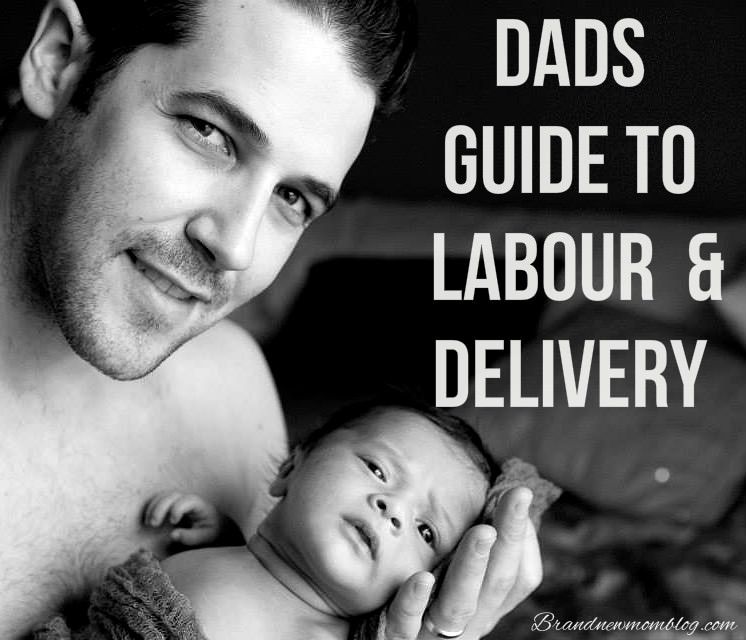
- Classes will help you prep for parenting (diaper changing, feeding, keeping baby healthy and safe), as well as cover strategies for how to co-parent with Mom.
- Support healthy habits.
- Your encouragement helps mom eat the right foods and avoid smoking and drinking during pregnancy. For example, research shows that your support makes it easier for Mom to begin and continue breastfeeding.
- Be there for labor and delivery.
- Both moms and dads naturally worry about the labor and delivery process. Some dads say they worry about doing the wrong thing in the delivery room, seeing their partner in pain, or being left out of important decisions. But they show up in big numbers and most are glad that they did. Moms report that having their partners in the delivery room reduces their anxiety and pain. And many dads find that meeting their baby right after birth is an experience that changes them forever—and helps them bond with their babies from those first seconds.
After the Baby is Born
- Continue the conversation.
- You’ve been talking, reading, and singing to your baby for months.
 Now enjoy seeing her responses for the first time!
Now enjoy seeing her responses for the first time!
- You’ve been talking, reading, and singing to your baby for months.
- Figure out how to share responsibility for the baby.
- New dads can do almost everything new moms can do: Change diapers, give baths, share stories, and take your turn walking and soothing when the baby is crying. If your partner is breastfeeding, you can participate by bringing the baby to her, or burping him when he’s done. Sharing these responsibilities right from the start gives you a chance to get to know your baby and builds a strong foundation for your relationship with him.
- Pay attention to your baby’s cues.
- Over time, babies develop their own ways of telling you want they need—through a particular cry, look, or movement. By spending time caring for and playing with your baby, you’ll start to decode her cues.
Today’s dads spend more time caring for their children than their fathers and grandfathers did. They recognize the value of sharing the everyday tasks of raising children—from diapering to discipline. Dads’ choices, and their voices, matter—to them, to moms, and to their kids.
Dads’ choices, and their voices, matter—to them, to moms, and to their kids.
Sign up for 'From Baby to Big Kid', our monthly parenting newsletter.
Downloads
Read More
Related Resources
View All Resources
Support ZERO TO THREE
We need your support now more than ever to ensure all babies have access to the quality care, services and support they need to thrive.
Donate
Tips for a future dad | Helping Your Wife After Childbirth: A Dad's Guide
PreviousNext
- We are in the third trimester. How can I help my beloved now?
- Help clean up the house
- Switch to a healthy diet
- Try not to get sick
- let her sleep
- Plan a trip to the maternity hospital
- How to help your wife after childbirth?
- Take on some of the "women's" affairs
- Help your loved one take care of the baby
- Read more
- Give her a weekend
- Follow her mood
- What other advice can you give to a future dad?
Contents:
 Flattering? Not at all: the very fact that you decided to find information on how to help your wife before and after childbirth already says a lot. First of all, we recommend that you be attentive to your beloved, surround her with care, help in everything she asks. Read the rest of the tips in our quick guide to the future dad.
Flattering? Not at all: the very fact that you decided to find information on how to help your wife before and after childbirth already says a lot. First of all, we recommend that you be attentive to your beloved, surround her with care, help in everything she asks. Read the rest of the tips in our quick guide to the future dad.
We are in the third trimester. How can I help my beloved now?
You are already familiar with sudden mood swings, unexpected food cravings and other "joys" of the beginning of pregnancy. In the third trimester, you will have other worries, and now you will tell you about them.
Help clean the house
In the third trimester, many expectant mothers develop "nesting syndrome" 1 - an irresistible desire to clean the house to a shine. To prove that the apartment is already in perfect order, to explain that rest is more important, to try to take away the vacuum cleaner - all this is now absolutely useless. And even dangerous: the thought that there is some dust left somewhere under the bed almost physically hurts the expectant mother. The only thing in your power is to join the nesting. Move cabinets, clean plumbing, and generally take on all the work related to household chemicals and heavy physical exertion. The expectant mother simply does not understand that this can be dangerous for herself and your common baby - hormones have taken over her brain and temporarily built an alternative priority system.
The only thing in your power is to join the nesting. Move cabinets, clean plumbing, and generally take on all the work related to household chemicals and heavy physical exertion. The expectant mother simply does not understand that this can be dangerous for herself and your common baby - hormones have taken over her brain and temporarily built an alternative priority system.
Switch to a healthy diet
It's not surprising for a mom-to-be to hear such advice, but for a dad-to-be? Why would he change his eating habits? It's very simple: if your loved one was a gourmet in a past life, now it is painful for her to watch you wash down a steak with red wine while she "eats" boiled chicken with broccoli. Do not provoke a pregnant woman. Show her by example that temporary food restrictions are not so terrible, and you are ready to share them with her.
Try not to get sick
It is absolutely undesirable for a woman to get sick in the third trimester 2 . If you feel a slight malaise and are afraid that you might have caught some kind of infection, try to have less contact with your beloved. Until the situation clears up, use different cutlery and towels, do not kiss, and go to sleep on a separate sofa at night. If there is no doubt that you are really sick, the best option is to stay with your parents or friends for a few days.
If you feel a slight malaise and are afraid that you might have caught some kind of infection, try to have less contact with your beloved. Until the situation clears up, use different cutlery and towels, do not kiss, and go to sleep on a separate sofa at night. If there is no doubt that you are really sick, the best option is to stay with your parents or friends for a few days.
Let her sleep
In later pregnancy, sleep problems begin 3 — due to the large belly, it is almost impossible to find a comfortable position, and the squeezed bladder reminds of itself almost every hour. No matter how much you want to fall asleep, hugging the pleasant roundness of your beloved, do a noble deed and offer to give up her bed for the rest of the third trimester. So your wife will finally be able to get some rest, and you will not constantly wake up when she once again gets up to use the toilet.
Plan a trip to the maternity hospital
When your loved one goes into labor, you have every right to call an ambulance to take you to the clinic with flashing lights, overtaking traffic jams in the oncoming lane. But keep in mind: she will not take you further than the nearest maternity hospital. If, for example, there is a modern perinatal center in a neighboring city, and you want to give birth there (you have the right to choose any maternity hospital in the country for free, except for commercial ones), you will have to travel on your own. Make a couple of test drives from home to your destination. Explore the route, find out its weaknesses, detour options - learn to overcome it as quickly as possible and, of course, as safely as possible. We understand that you have a navigator, but has it never let you down? What if it happens on that very day?
But keep in mind: she will not take you further than the nearest maternity hospital. If, for example, there is a modern perinatal center in a neighboring city, and you want to give birth there (you have the right to choose any maternity hospital in the country for free, except for commercial ones), you will have to travel on your own. Make a couple of test drives from home to your destination. Explore the route, find out its weaknesses, detour options - learn to overcome it as quickly as possible and, of course, as safely as possible. We understand that you have a navigator, but has it never let you down? What if it happens on that very day?
How to help your wife after childbirth?
Your loved one may pretend to cope with everything herself, but believe me, she really needs your help. Here are some tips on how you can be useful in this joyful and at the same time difficult period in the life of your family.
Take on some of the "women's" affairs
In many families, the “traditional” division of duties is practiced, when a man brings heavy packages from the store, hangs up shelves and screws the cabinet handles that have fallen off into place, and the woman, as the keeper of the hearth, gets everything else - washing, ironing, cleaning, cooking. We are not saying that this is bad or good - if the two of you are happy with everything, why change the usual way? However, when caring for a child is added to household chores, a woman catastrophically ceases to have enough time. If you do not want this to end in a nervous breakdown of your beloved or the arrival of your mother-in-law for permanent residence in your apartment, wash the dishes more often, learn how to use a vacuum cleaner and a washing machine. Who knows, you might even like it.
We are not saying that this is bad or good - if the two of you are happy with everything, why change the usual way? However, when caring for a child is added to household chores, a woman catastrophically ceases to have enough time. If you do not want this to end in a nervous breakdown of your beloved or the arrival of your mother-in-law for permanent residence in your apartment, wash the dishes more often, learn how to use a vacuum cleaner and a washing machine. Who knows, you might even like it.
Help your loved one take care of the baby
Try changing a diaper yourself. Watch your loved one bathe the baby and then offer to do it for her. After feeding, say that you yourself are ready to hold the baby as a soldier until he burps. At first you will understand that all these activities are quite within the power of a young dad, and a little later - that perhaps such moments are the best thing that can be in fatherhood.
Read more
If you think that having a baby automatically makes a woman an expert in baby care, then no, that's not how it works. Your loved one went to pregnancy courses, listened to the advice of doctors, but still doesn’t know much. Open our library of articles and read them all in a row. How to walk with a baby, how to deal with diaper rash, when to get vaccinated, how to recognize chickenpox - all this information will not be superfluous. Problems are inevitable in the life of any family with a small child, and perhaps it is the knowledge of a young dad that will help to quickly and effectively deal with them.
Your loved one went to pregnancy courses, listened to the advice of doctors, but still doesn’t know much. Open our library of articles and read them all in a row. How to walk with a baby, how to deal with diaper rash, when to get vaccinated, how to recognize chickenpox - all this information will not be superfluous. Problems are inevitable in the life of any family with a small child, and perhaps it is the knowledge of a young dad that will help to quickly and effectively deal with them.
Give her a weekend
If you listened to the previous advice for dads, then you will not be so afraid to be alone with the child. Invite your loved one to periodically arrange rest days when she does not take care of the child and the house, but devotes all the time only to herself. Going to a beauty salon, meeting friends, going shopping - from time to time it is very important for a woman to feel that her past life has not disappeared, and the pleasant activities that she loved before are still available to her.
Watch her mood
This does not happen to everyone, but some women experience postpartum depression in the first months of their baby's life 4 . It may seem to a young mother that she has ceased to be attractive, that now her whole life is focused on the little man, and she is losing her independent personality, that the new conditions of the family triangle destroy the close connection between the two of you. Advice for dad in such a situation is as follows: monitor the mood of your beloved, and if you notice that she has begun to sink into the abyss of melancholy, urgently pull her out of there! Give her more time, listen carefully to everything she wants to share with you, call her friends and ask to visit her. And, most importantly, remind more often that you love her, and taking care of the child is your common cause.
What other advice can you give to a future dad?
Just don't forget that fatherhood is not only a great joy, but also a great responsibility.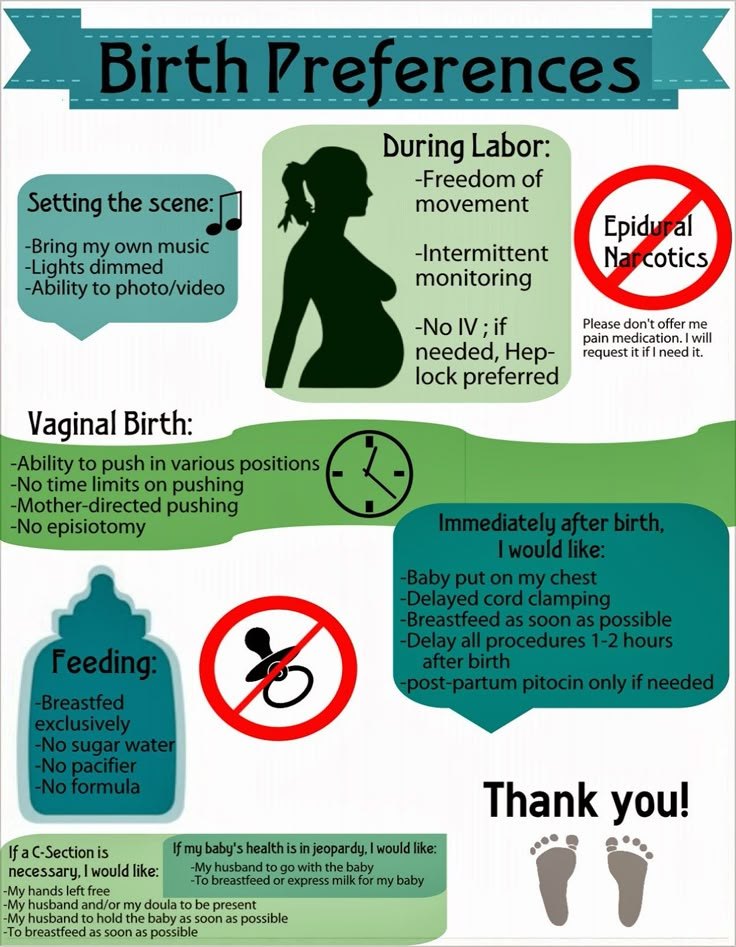 Consider the interests of the child when making any major family decisions. Make global plans, thinking about how they will affect his future. Remember that a small person with their own desires and dreams is growing next to you. Help your child to discover his abilities and try to give him everything that is necessary for this. In general, imagine what an ideal father should be - and try to become one.
Consider the interests of the child when making any major family decisions. Make global plans, thinking about how they will affect his future. Remember that a small person with their own desires and dreams is growing next to you. Help your child to discover his abilities and try to give him everything that is necessary for this. In general, imagine what an ideal father should be - and try to become one.
Sources:
-
Stephanie Watson. Is Nesting Real? WebMD.
-
Janet A Englund, Helen Y Chu. Respiratory Virus Infection During Pregnancy: Does It Matter? The Journal of Infectious Diseases, Volume 218, Issue 4, 15 August 2018, Pages 512–515.
-
Aynur Kızılırmak, Sermin Timur, and Bahtışen Kartal. Insomnia in Pregnancy and Factors Related to Insomnia. scientific world journal. 2012; 2012: 197093.
-
postnatal depression.
 NHSUK.
NHSUK.
Tips for the future dad - Healthy Russia
Alexey Paevsky
When it comes to pregnancy, expectant mothers are usually given helpful advice: relax, sleep more, talk to your baby, go for walks, eat one thing, don't eat another. And what about without five minutes to dad? Who will remember him?
We men are told that having a baby is a huge responsibility. They also constantly repeat that a pregnant wife should be carried in her arms until they begin to fall off.
And here is the finish line. Friends, let's calm down and take the situation into our still surviving hands. Let's start...
... with foot massage . Pregnancy is not only weight gain, which worries our beautiful halves so much, but also swollen and tired legs.
Choose any nice-smelling body lotion from your wife's arsenal (stay on what she likes now - sometimes pregnancy changes tastes!) and knead her tired feet. This will not only calm the expectant mother, but also give you the opportunity to calmly talk for about ten minutes.
This will not only calm the expectant mother, but also give you the opportunity to calmly talk for about ten minutes.
Wash the bathroom. It's short and easy. In addition, it is better for your spouse not to bend over, especially over the toilet, and not breathe in something that kills germs on the spot. Perhaps in the first months of pregnancy, she got to know him too closely.
Shiny? That's great, ten points to karma!
Be curious. Nothing improves the mood of pregnant wives like the sincere interest of husbands in naming options for the baby, the results of ultrasound and other tests. A pleasant bonus of such interest is obvious: you will keep everything under your control, which means that nothing unforeseen will happen.
Ask her out. The belly is not a hindrance to a date: he will be happy to sit with friends in a cafe or go to the movies. True, then, in retaliation, he will drag you to choose a stroller, but you can stand it with honor, right? You can't let a kicking little sass steal all the attention of your beloved woman.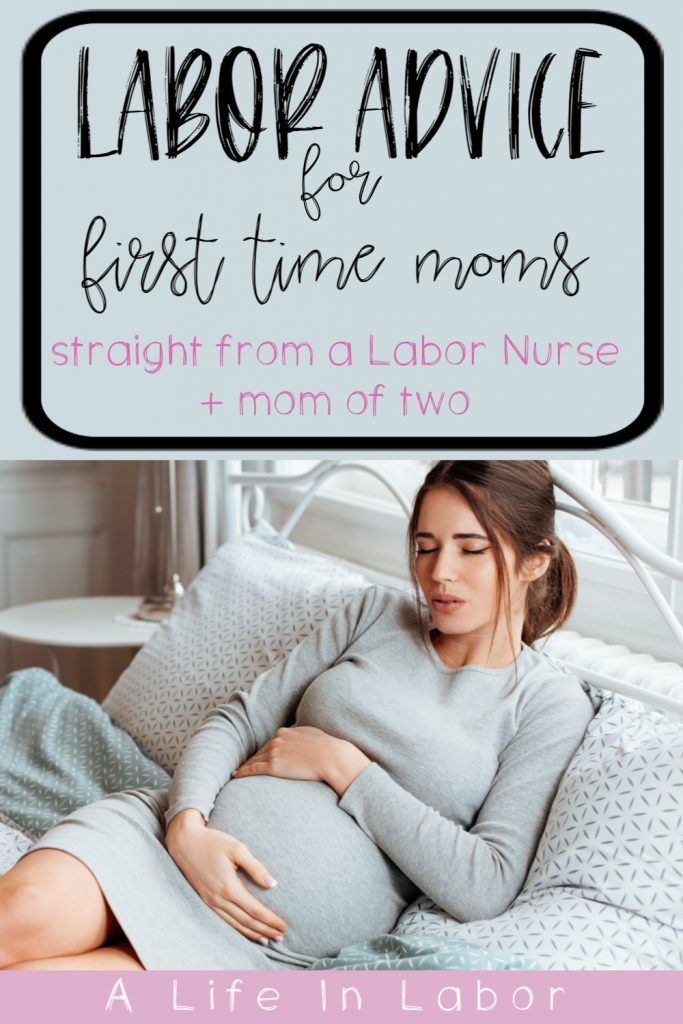
Get ready for childbirth with your wife. Who else is going to keep her cool when she goes into labor? In order not to turn green and not to faint, succumb to the persuasion of your beloved, choose the time and attend courses for young parents. At the same time, flash your knowledge in front of your friends - let them turn green.
Always keep your car fueled and keep your documents and keys in a visible place. Little whether that? In addition, try to be sober as glass during this period, twenty-four hours a day. Children have their own opinions about when is the best time to be born. And childbirth at a gas station, while waiting for a taxi or in public transport, is hardly included in your plans.
Let the expectant mother sleep. Now she needs rest more than ever. After all, she not only wears an analogue of a tourist backpack in a place that is not very suitable for this, but also worries about two. And even for three - if you have not practiced self-control with Indian leaders.
So put your missus on the barrel, wash the dishes in the evening and plan your breakfast in the morning. Let her sleep - she has at least another six months of not the most peaceful nights ahead of her. While your loved one is trying to calm down the heir jumping in her stomach, you can finish playing Tanks, finish the quarterly report and sort out the photos. Of course, if the dishes are already washed.
If you don't know how to cook yourself - hide semi-finished products in the freezer. Now their presence should not be advertised, but while your beloved wife is in the hospital, you will have to eat something. In extreme cases, find out the phone number of the pizza delivery service.
Estimate the number of clean shirts , whole socks and forecast their availability by the due date. No, a freshly baked father can be forgiven for red eyes from lack of sleep, but not a homeless look.
Buy your own crib, car seat and stroller. Women rarely pay attention to the performance characteristics of things until they start to get stuck in the elevator doors. Take a walk to the stairwell with a tape measure, visit the room and car interior with it, and then, armed with the measurements taken, carefully ask your wife what color of the stroller she prefers.
Take a walk to the stairwell with a tape measure, visit the room and car interior with it, and then, armed with the measurements taken, carefully ask your wife what color of the stroller she prefers.
Don't be persuaded and buy the most practical things:
- a crib that is easy to get your baby out of,
- a stroller that your spouse can roll outside without your help,
- a car seat that can be put on a chassis from a stroller.
Pack a bag for the maternity hospital with your wife. Start with a list from which you will cross off the packed things while your spouse rushes around the house like a bachelor in the kitchen. Put in a conspicuous place those things that you personally take to the hospital.
Collect the "alarm case" for yourself as well. Do not forget to put there two chargers for phones (yours and your wife), a camera, a supply of cash, as well as a list of phone numbers of friends and relatives on a separate piece of paper.






